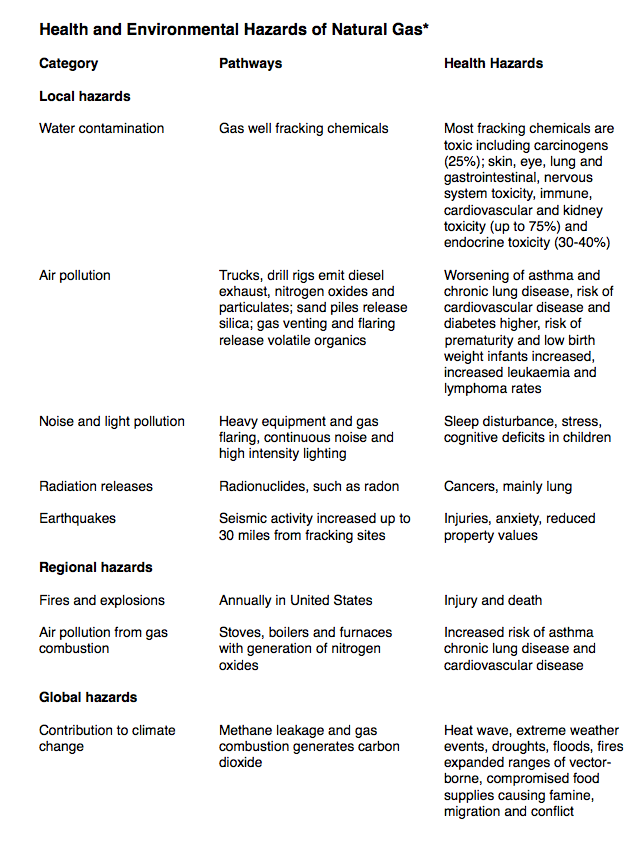An opinion piece by Anton van Walraven in a recent Undercurrent (Jan. 30, page 6) explored further the issue of the impact of liquefied natural gas. Clearly, this is a complex issue, not to mention immediate dangers posed by the proposed marine transport route of this gas from Squamish through highly populated areas of Howe Sound and the Salish Sea, including Bowen Island. Also very significant are the effects on health that will inevitably impact all of us, recently noted in the New England Journal of Medicine (Jan. 9, p. 104 to 107).
To summarize that article, the authors noted a 400 per cent increase in natural gas production in the U.S. alone since 1950 due to hydraulic fracturing (“fracking”). This process uses large volumes of water, sand and chemicals for injection deep underground at high pressure to fracture shale deposits, sand and coal beds to release trapped gas. Similar activity is occurring in British Columbia. The gas consists largely of methane, a so-called “clean” energy by the proponents of this industry (“apples versus oranges” compared to coal and gas). The authors of this article emphasize that this is only partially true. While gas combustion produces only negligible amounts of sulfur dioxide, mercury and particulates, this “clean claim” should not be interpreted as less polluting. Nor a “net” benefit to human health.
Indeed, this story is much bigger. Fracking has been linked to ground and surface water contamination, air pollution, noise and light pollution, release of radiation, ecosystem damage and earthquakes. Transport and storage of gas have caused fires and explosions. Recent experience has shown that pipelines are aging, inadequately maintained and rarely inspected. In the U.S. alone, one or more serious explosions occur annually. In September 2018, for example, explosions in Merrimack Valley, Massachusetts were reported to have caused 80 fires, damaged 131 homes, led to evacuation of 30,000 people, and caused serious injury and death. Gas compressors release toxic and carcinogenic substances, including benzene, 1,3-butadiene and formaldehyde. Eventual gas combustion generates nitrogen oxides that increase asthma risk and aggravate other forms of chronic lung disease. An impact has already been demonstrated on our climate. About four per cent or more of all fracked gas is lost to leakage, causing sharp increases in atmospheric nitrogen reported to have heat-trapping potential up to 85 times that of carbon dioxide over a 20-year span. The combustion of gas also contributes to global warming by generating carbon dioxide. It appears that the benefit of gas over coal and oil has been overly exaggerated.

Economically, there are other arguments, especially since the cost of producing electricity from renewables is falling rapidly. Within the next three years, the Energy Information Administration in the U.S. estimated that it will cost $36.60 per megawatt-hour to produce electricity from wind and, $37.60 from solar, compared to $40.20 from gas. Thus, even in the short term, investment in gas represents a risk of failed economic return and a stranded asset. This reduction in economic return may be made even more significant if the recommendation made by the International Monetary Fund is followed: cut government subsidies to the oil and gas industry. Add to this the likely added societal costs of dealing with the results of this increasing hazard to our health in the future.
Some health hazards were noted by the authors and summarized in the attached Table, even though this list will be likely lengthen with time with increased detection by physicians and increased awareness by the public.
We really need to support the comments of Anton van Walraven and other serious thinkers about this issue and urge our local, provincial and federal governments to remove any form of support for their activities. They need to be accountable. For instance, drug companies and the tobacco industry must now note health dangers and side effects of their products in advertising to the public. So should “big oil and gas.”
Dr. Hugh Freeman



